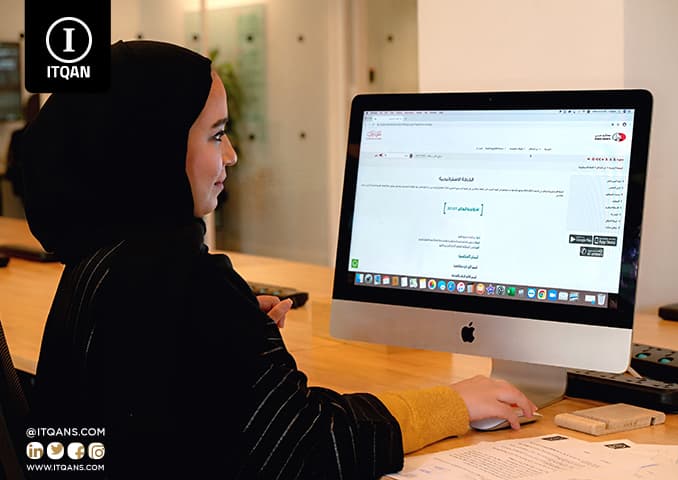How to be a foreign investor in the UAE? The United Arab Emirates is considered one of the main investment destinations in the Middle East, thanks to its strategic location and diverse and thriving economy. The country offers a developed investment environment supported by a strong legal system that ensures the protection of investors’ rights. If you are thinking about entering the UAE market as a foreign investor, there are several basic steps and strategies that must be taken into consideration to ensure the success of your investment. From choosing the right type of business entity to understanding licensing requirements, this article will help you review the necessary procedures and important steps to establish your business in the UAE efficiently and effectively. We will also review how to be a foreign investor in the UAE and how you can benefit from government support and investment opportunities available in various free zones, which provide several advantages to foreign investors

جدول المحتوى
ToggleHow to be a foreign investor in the Emirates
Becoming a foreign investor in the UAE requires following a set of steps that ensure you make the most of the available opportunities and avoid any legal problems. Here is a basic guide on how to become a foreign investor in the UAE:
- Determine the type of investment and business activity : Determine the field you want to invest in and the business activity you want to do. The UAE offers a wide range of investment opportunities in sectors such as technology, real estate, industry, and financial services.
- Choosing a legal entity type : Depending on the business, you will need to choose the appropriate legal entity type. Options include limited liability companies (LLC), sole proprietorships, and wholly foreign-owned companies in free zones.
- Choosing a geographical area : You can choose to invest in free zones or in major economic zones. Free zones such as Dubai, Abu Dhabi, and Jebel Ali offer many benefits such as tax exemptions and full ownership by foreigners.
- Preparing legal documents : Prepare all required legal documents such as articles of association, articles of association, and passports. You may also need to provide a feasibility study and proof of funding sources.
- Registration and obtaining licenses : After preparing the documents, you must register your company in the relevant government departments and obtain the necessary licenses. In the UAE, procedures vary depending on the type of activity and location.
- Open a bank account : Open a commercial bank account in one of the UAE banks to facilitate your company’s financial operations.
- Compliance with local laws : Ensure compliance with all local laws and regulations, including labor laws, taxes, and environmental standards.
- Cooperating with local advisors : To benefit from local market expertise and ensure your compliance with the laws, it may be useful to cooperate with local advisors or consulting companies such as Itqan that provide integrated services to foreign investors. By following these steps, you can achieve investment success in the UAE and enjoy the benefits of the dynamic business environment and promising opportunities that the country offers.
Investing in the Emirates
The United Arab Emirates is considered one of the most prominent investment destinations in the Middle East thanks to its stable and prosperous economic environment. The country attracts foreign investors thanks to its advanced infrastructure, strategic location, and the facilities it provides in various sectors. The UAE offers diverse investment opportunities that include technology, real estate, industries, and financial services, allowing investors to choose the field that suits their interests and goals. The UAE is characterized by the presence of many free zones that provide tax advantages, flexibility in full foreign ownership, and simplified establishment procedures. Supportive government policies contribute to enhancing the business environment, as they provide legal and financial facilities to encourage foreign investments. In addition, the UAE guarantees political and security stability, making it an attractive environment for investors. Taking advantage of local advice, such as that provided by companies specializing in investment services, is an important step to ensuring the success of projects and avoiding legal challenges. Overall, the UAE offers promising opportunities for foreign investors, making it an ideal destination to invest money and grow businesses.
Advantages of investing in the Emirates
Investing in the UAE has a number of advantages that make it an attractive option for investors from all over the world. The most prominent of these advantages are:
- Stable economic environment : The UAE is characterized by a stable and supportive economic environment for business, with government policies that encourage economic growth and development.
- Strategic location : The UAE’s geographical location is located in the heart of the world, making it an ideal gateway to access the markets of the Middle East, Africa, and Asia.
- Free zones : The UAE provides many free zones that give investors advantages such as tax exemption, full ownership of companies by foreigners, and no need for a local partner.
- Advanced infrastructure : The UAE boasts a world-class infrastructure that includes ports, airports, and logistical networks that contribute to facilitating commercial operations.
- Effective legal system : The UAE has a distinguished legal system that guarantees the protection of investors’ rights and ensures that commercial laws are applied fairly and transparently.
- Diverse financing opportunities : The state provides various financing options from banks and financial institutions, which makes it easier for investors to obtain the necessary financing to support their projects.
- Qualified labor market : The labor market in the UAE has skilled and qualified workers from various specializations, which enhances the ability to implement projects effectively.
- Political and security stability : The UAE provides a safe and politically stable environment, which reduces risks and enhances investment confidence.
These advantages make the UAE an attractive destination for foreign investors looking for growth and expansion opportunities in the Middle East region.
Investment opportunities in the Emirates
The UAE offers a wide range of investment opportunities in different sectors, making it a favorite destination for investors from all over the world. Here are the most prominent investment opportunities available in the UAE:
- Real Estate : The real estate market in the Emirates, especially in Dubai and Abu Dhabi, is considered one of the most attractive markets for investments. Real estate opportunities include residential, commercial, and hotel projects, thanks to continued demand and urban growth.
- Technology and Innovation : The UAE invests heavily in technology and innovation, which opens the way for investment in sectors such as artificial intelligence, information technology, and application development. Dubai is considered a major hub for technology startups.
- Renewable energy : As the country moves towards sustainability, there are great opportunities in the field of renewable energy, including solar and wind energy. Projects such as the “Mohammed bin Rashid Al Maktoum Solar Park” provide lucrative investment opportunities.
- Tourism and Hospitality : Tourism is one of the basic pillars of the UAE economy. Investors can enter into tourism projects, hotels, and resorts to enhance the growing tourist experience in the country.
- Manufacturing industries : The UAE seeks to diversify its economy by supporting manufacturing industries. Investment opportunities in this field include food industries, chemicals, and light manufacturing.
- Financial sector and banking services : The UAE is considered a global financial center, with many banks and financial institutions. You can invest in banking, insurance, and asset management.
- Trade and Distribution : Thanks to its strategic location as a link between global markets, the UAE provides opportunities in the trade and distribution sector. Investors can exploit the excellent infrastructure to expand their business.
- Health and Medical Care : Growth in the health care sector provides opportunities for investment in hospitals, clinics, and medical research centers. The UAE is focused on improving the quality of healthcare and patient experience.
These opportunities are part of the growing investment environment in the UAE, which seeks to attract capital and develop diverse sectors to support the national economy.
Steps to invest in the Emirates
Investing in the UAE requires following a set of basic steps to ensure the success of the project and meeting all legal requirements. Here are the main steps to follow:
- Determine the type of investment : Determine the field you want to invest in, such as real estate, technology, tourism, or any other sector. Make sure the investment aligns with your interests and financial goals.
- Conduct a feasibility study : Prepare a comprehensive feasibility study for the project. This includes analyzing the market, identifying the target audience, assessing the competition, and estimating expected costs and revenues.
- Choose a legal entity : Choose the appropriate legal entity type, such as a limited liability company (LLC), a branch of an international company, or a company in a free zone. The choice of entity depends on the nature of your business and licensing requirements.
- Site Selection : Determine the ideal location for your project. This could be in one of the free zones that offer special benefits, or in the main commercial areas depending on the type of activity.
- Preparing legal documents : Collecting and preparing the necessary documents, such as articles of incorporation, articles of association, and passports. You may also need to submit a business plan and feasibility study.
- Company registration and obtaining licenses : Register your company with the economic department or the competent authority in the emirate in which you wish to operate. Apply for the necessary licenses, such as a commercial or industrial license.
- Opening a bank account : Open a commercial bank account in one of the UAE banks. You will need this account to manage the company’s financial operations.
- Renting or purchasing commercial space : Securing the space needed for your business, whether it is an office, store, or industrial facility. Make sure the space aligns with your business needs.
- Recruitment and Compliance with Laws : Hire the necessary personnel, and ensure compliance with all local labor laws. This includes employee registration, insurance, and compliance with labor regulations.
- Start operations and marketing : Once all legal and processing requirements are met, you can start operations and implement marketing strategies to attract customers and achieve growth.
- Cooperating with local advisors : To benefit from local expertise and ensure your compliance with the laws, you can cooperate with local advisors or consulting companies specialized in investment services. By following these steps, you can achieve a successful investment in the UAE and benefit from the attractive investment environment that the country provides.

How to establish a company in the Emirates
Establishing a company in the UAE requires following specific steps to ensure compliance with the laws and obtaining the necessary licenses. Here is a step-by-step guide on how to establish a company in the UAE:
- Determine the type of company and its activity :
- Select the appropriate legal entity type for your company, such as a limited liability company (LLC), a branch of an international company, a wholly foreign-owned company in free zones, or any other type.
- Choose the business activity your company will undertake, as it must match the type of license required.
- Preparing the business plan and feasibility study : Prepare a clear business plan and feasibility study for the project. This includes market analysis, costs, and projected revenues.
- Choosing a company name : Choose a company name that complies with the company nomenclature rules in the Emirates. Make sure the name is not reserved or in violation of local laws.
- Registering the company and obtaining a license :
- In free zones : Register your company in the free zone you have chosen. You will need to submit the required documents and obtain a license from the relevant authority.
- In non-free zones : the company’s register in the economic department or the competent authority in the relevant emirate. Apply for the appropriate business license.
- Preparing legal documents : Provide the necessary documents such as articles of association, articles of association, passports, and any other required documents. You may also need to submit a business plan and feasibility study.
- Opening a bank account : Open a commercial bank account in one of the UAE banks to facilitate the management of financial operations.
- Renting or purchasing commercial space : Securing the appropriate space to conduct your business activity, whether it is an office, a store, or an industrial facility. Make sure the space is consistent with the activity authorized in the license.
- Recruiting and registering employees : Recruit the necessary personnel, and ensure that employees are registered in the social insurance system and comply with local labor laws.
- Comply with Local Regulations : Ensure compliance with all local laws and regulations, including taxes, licensing, and health and safety requirements.
- Start operations and marketing : After meeting all requirements, you can start operations and apply marketing strategies to attract customers and achieve success.
- Cooperating with local advisors : To benefit from local expertise and ensure your compliance with the laws, it may be useful to cooperate with local advisors or consulting companies that specialize in company formation services. By following these steps, you can successfully establish a company in the UAE and benefit from the favorable business environment that the country offers.
In conclusion, the United Arab Emirates is one of the leading investment destinations in the world, thanks to its dynamic economic environment, strategic location, and advanced infrastructure. Entering the UAE market as a foreign investor requires following thoughtful steps, starting with determining the type of investment and its activity, through preparing legal documents and obtaining licenses, all the way to starting operations and marketing. Collaborating with local advisors can have a significant impact on the success of your investment, as they provide the support and expertise needed to deal with legal and business procedures. By taking advantage of the diverse opportunities offered by the UAE, and applying effective strategies, foreign investors can achieve great success and sustainable growth. The UAE offers a fertile environment full of potential, making it an excellent choice to achieve your investment goals and expand your business on a global scale.
Frequently asked questions about how to be a foreign investor in the UAE
What are the basic steps to establish a company in the UAE?
Steps include determining the type of company, preparing a business plan and feasibility study, choosing a company name, registering the company and obtaining a license, opening a bank account, leasing or purchasing commercial space, hiring employees, and complying with local laws.
What types of companies can foreigners establish in the UAE?
Foreigners can establish limited liability companies (LLC), sole proprietorships, wholly owned companies in free zones, or branches of international companies.
What are free zones, and what are the benefits of investing in them?
Free zones are special economic zones that offer benefits such as tax exemption, full ownership by foreigners, and ease of establishment procedures. It also provides advanced infrastructure and logistical support.
What are the documents required to register a company in the UAE?
Basic documents include articles of incorporation, articles of association, passports, and usually require the submission of a feasibility study and business plan.


















